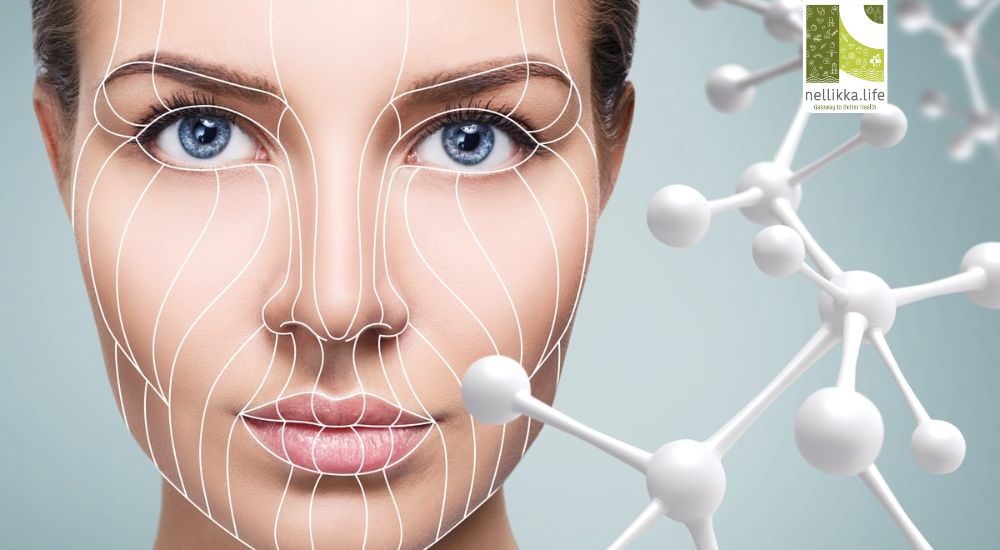Glowing From Within: How Women Can Maintain Healthy Skin at Every Age

Why Skin Health Deserves Attention
Skin is your body’s largest organ—and a vital indicator of your internal health. For women, skin is not just about appearance—it reflects hormonal balance, stress levels, hydration, and nutrition.
Yet, due to factors like pollution, UV exposure, hormonal fluctuations, and poor lifestyle choices, many women face concerns like acne, pigmentation, premature aging, and dullness.
The good news? Healthy skin isn’t about expensive products—it’s about sustainable care, science-backed practices, and self-awareness.
The Biology Behind Skin Health
Your skin has three main layers:
- Epidermis (outer layer): Provides barrier protection
- Dermis: Contains collagen, elastin, and blood vessels
- Hypodermis: Made of fat and connective tissue
As you age, collagen production decreases, cell turnover slows, and hormonal shifts (like during menstruation, pregnancy, or menopause) can alter oil production and elasticity. [1]
Common Skin Challenges in Women
| Stage | Skin Concerns |
|---|---|
| Teens | Acne, oily skin, hormonal breakouts |
| 20s–30s | Sun damage, pigmentation, lifestyle-related dullness |
| 40s–50s | Dryness, fine lines, perimenopausal changes |
| 60+ | Thinning skin, age spots, decreased healing ability |
1. Nutrition: Your Skin’s Best Ally
Omega-3 Fatty Acids
- Reduces inflammation, maintains hydration [2].
Antioxidants
- Vitamin C, E, and polyphenols fight oxidative stress, delay aging [3].
Hydration
- Drinking 2–3 litres of water daily supports detoxification and plumpness
Limit Sugar & Dairy (if acne-prone)
- High-glycemic foods and milk products can worsen acne in some women. [4]
2. Sun Protection Is Non-Negotiable
- UVA rays age your skin; UVB rays burn it
- Daily sunscreen with SPF 30 or higher reduces pigmentation, prevents photoaging, and lowers skin cancer risk [5]
3. Choose the Right Skincare Routine
Cleanse:
- Use a gentle, pH-balanced cleanser (especially if dry or sensitive skin)
Moisturize:
- Look for ingredients like ceramides, hyaluronic acid, or niacinamide
Treat:
- Retinol/Retinoids for anti-aging (night use only)
- AHAs/BHAs for exfoliation and acne
- Vitamin C serum for brightness and collagen boost [6]
4. Sleep & Skin – The Night Repair Cycle
- During sleep, your body boosts blood flow to the skin, repairs damage, and regenerates cells
- Aim for 7–9 hours/night
- Sleep on a clean pillowcase and avoid sleeping with makeup [7]
5. Manage Stress – Cortisol Affects Skin Too
Stress increases cortisol, which:
- Triggers acne and eczema flare-ups
- Slows down wound healing
- Accelerates aging
Regular yoga, meditation, and breathwork have shown to reduce cortisol levels.
6. When to See a Dermatologist
- Persistent acne, eczema, or pigmentation
- Sudden moles or skin growths
- Hormonal skin issues during PCOS or menopause
- Pre/postnatal skin conditions like melasma
Dermatologists can guide personalized regimens, clinical treatments, and lifestyle changes.
7. Traditional Wisdom & Skin
Ayurveda and Indian practices suggest:
- Abhyanga (oil massage) for circulation and skin nourishment
- Haldi (turmeric) and besan (gram flour) for brightening
- Seasonal routines (Ritucharya) to adapt skincare based on climate and dosha
Healthy skin isn’t about flawless perfection — it’s about understanding your unique biology, giving it the care it needs, and building habits that nourish from within.
Instead of chasing trends, embrace a science-meets-self-care approach that honors your skin’s natural rhythm.





